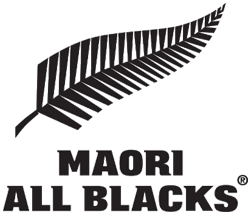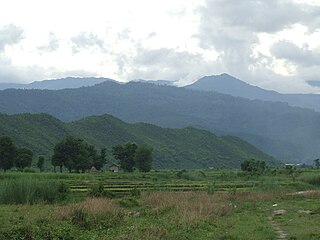
The culture of New Zealand is essentially a Western culture influenced by the unique environment and geographic isolation of the islands, and the cultural input of the indigenous Māori people and the various waves of multi-ethnic migration which followed the British colonisation of New Zealand.

Chin State is a state in western Myanmar. The 36,019-square-kilometre (13,907 sq mi) Chin State is bordered by Sagaing Division and Magway Division to the east, Rakhine State to the south, Bangladesh to the south-west, and the Indian states of Mizoram to the west and Manipur to the north. The population of Chin state is about 478,801 in 2014 census. The capital of the state is Hakha. The state is a mountainous region with few transportation links. Chin State is sparsely populated and remains one of the least developed areas of the country. Chin State has the highest poverty rate of 73% as per the released figures from the first official survey.The official radio broadcasting dialect of Chin is Falam. There are 53 different subtribe and languages in Chin State. There are nine townships in Chin State. Hakha, Thantlang, Falam, Tedim, Tonzang, Matupi, Mindat, Kanpetlet and Paletwa townships. In 1926,it became a part of Pakokku Hill Tracts Districts of British Burma until 1948,January 4.
Traditional Māori music, or Te Pūoro Māori is composed or performed by Māori, the native people of New Zealand, and includes a wide variety of folk music styles, often integrated with poetry and dance.

The Tonga national rugby union team is nicknamed ʻIkale Tahi . Like their Polynesian neighbours, the Tongans start their matches with a war dance – the Sipi Tau. They are members of the Pacific Islands Rugby Alliance (PIRA) along with Fiji and Samoa. The Ikale Tahi achieved a historic 19–14 victory over France in the 2011 Rugby World Cup, but having lost to New Zealand and Canada, were unable to achieve what would have been their first ever presence at the quarter-finals.

Hakha is the capital of Chin State in Myanmar

Byron Terence Kelleher is a former rugby union scrum-half who played for Stade Toulouse in the French Top 14 and has played 57 tests for the All Blacks. He was a very aggressive player, who specialized in pick-and-go techniques.

The Māori All Blacks, previously called the New Zealand Māori, are a rugby union team from New Zealand. A representative team of the New Zealand Rugby Union, a prerequisite for playing in the team is that the player has Māori whakapapa (genealogy). In the past this rule was not strictly applied; non–Māori players who looked Māori were often selected in the team. These included a few Pacific island players and a couple of African descent. Today all players have their ancestry verified before selection in the team.
The haka, a traditional dance of the Māori people, has been used in sports in New Zealand and overseas. The challenge has been adopted by the New Zealand national rugby union team, the "All Blacks", and a number of other New Zealand national teams perform before their international matches; some non-New Zealand sports teams have also adopted the haka.

The haka is a traditional Māori dance form. The use of haka in popular culture is a growing phenomenon, originally from New Zealand. Traditionally, haka were used only in Māori cultural contexts, but today haka are used in a wide range of public occasions.
Norman Jason "Norm" Hewitt is a former New Zealand All Black rugby union player. He was selected for the New Zealand team because of his fantastic performance in Hawkes Bay's surprise victory over the British Lions in 1993. In 1997 while playing for New Zealand against England Hewitt was confronted during his side's haka by his English counterpart Richard Cockerill, during the latter's first start for his country.
Although the haka is a traditional dance form of the Māori of New Zealand, the use of a haka by the All Blacks rugby team before matches has made it familiar worldwide, and various haka have been adopted by sports teams outside New Zealand, particularly American football teams in the United States. Though some teams do contain Maori players, frequently the haka has been performed by teams with players from other Polynesian groups, indicating that it has become part of a pan-Polynesian sports culture.
Hakha Chin, or Lai, is a Kuki-Chin language spoken by 446,264 people, mostly in Myanmar. The total figure includes 2,000 Zokhua and 60,100 Lai speakers. The speakers are largely concentrated in Chin State in western Burma and Mizoram in eastern India, with a small number of speakers in southeastern Bangladesh.
The Lai languages are various Central Kuki-Chin languages spoken by the Lai people. They include Laiholh (Hakha-Chin) spoken around the Haka (Hakha/Halkha) capital of Chin State in Burma (Myanmar) and in the Lawngtlai district of Mizoram, India. In Bangladesh, a related language is spoken by the Bawm people. Known locally as Hakha Holh, it is probably the most spoken language in Chin State. Another branch of Lai Kukish includes Falam Lai, better known as Laitong. Other Lai languages are Mi-E, and the Zokhua dialect of Hakha spoken in Zokhua village.

Te Matatini is a nation-wide Māori performing arts festival and competition for kapa haka performers from all of Aotearoa. The name was given by Professor Wharehuia Milroy, a composite of Te Mata meaning the face and tini denoting many — hence the meaning of Te Matatini is many faces.

Kale Township is a township in Kale District in the Sagaing Division of Burma (Myanmar). The principal town is Kalay.
Aaron Luke Smith is a rugby union player who plays for New Zealand, the All Blacks, in international rugby. He plays at Scrum-Half in the team and is the most-capped Scrum-Half to ever play for New Zealand.










